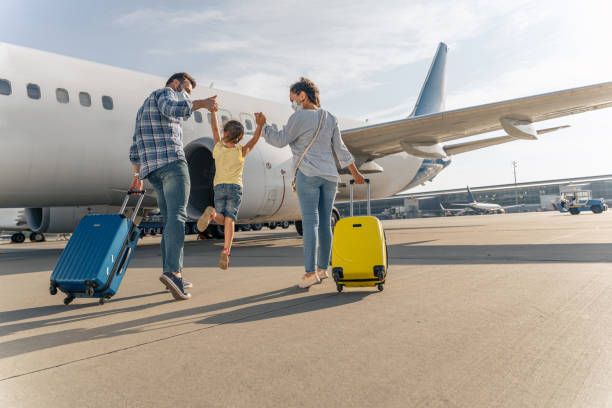Benefits of Traveling Often

Traveling is an amazing experience that not only provides a break from the monotony of everyday life but also offers numerous benefits to the human mind, body, and soul.
From exploring new cultures, trying different cuisines, meeting new people, and visiting breathtaking landscapes, traveling is an adventure that everyone should experience at least once in their lifetime.
However, there are many who are not convinced of the benefits of traveling, which is why this article will outline the top benefits of traveling often.
Traveling broadens your perspective

One of the greatest benefits of traveling is that it broadens your perspective. When you travel to new places, you are exposed to different cultures, customs, languages, and ways of life that you might not have known existed before.
This exposure can be incredibly eye-opening, as it challenges your preconceived notions and helps you see the world in a different way.
As you interact with people from different backgrounds, you begin to appreciate the diversity of the world and develop a sense of empathy towards others.
Traveling improves your social skills

Traveling is a great way to improve your social skills, as it forces you to interact with people from different walks of life. When you travel, you are often outside of your comfort zone, which means you need to be able to communicate effectively with strangers.
This can be especially challenging if you are traveling to a country where you do not speak the language.
However, by putting yourself in these situations, you can improve your communication skills, learn how to read body language, and become more confident in social situations.
Traveling boosts creativity

Traveling can also be a great way to boost creativity. When you are in a new environment, you are exposed to new stimuli that can inspire creativity.
Whether it is the architecture, the landscapes, or the people, there is something about traveling that can spark your imagination and help you think outside the box.
Additionally, by immersing yourself in new cultures, you can gain a deeper understanding of the world and find new sources of inspiration.
Traveling reduces stress

Another great benefit of traveling is that it can help reduce stress. When you are on vacation, you are often removed from the stresses of everyday life, such as work, school, and household chores.
This break can be incredibly rejuvenating and can help you reset your mind and body. Additionally, travel has been shown to lower cortisol levels, which is a hormone associated with stress.
Traveling improves your health

In addition to reducing stress, traveling can also have other health benefits. For example, when you travel, you are often more active than you would be at home.
Whether it is hiking, swimming, or simply walking around a new city, travel can help you stay active and improve your physical health.
Additionally, travel has been linked to better mental health, as it can improve mood and decrease symptoms of depression and anxiety.
Traveling enhances learning

Traveling is also a great way to enhance learning. When you travel, you are exposed to new ideas and ways of thinking that can help you grow intellectually.
Whether it is learning about history, art, or science, travel can be an incredible educational experience.
Additionally, by traveling to different countries, you can learn about different political systems, social structures, and economic models, which can give you a deeper understanding of the world.
Traveling strengthens relationships

Traveling can also be a great way to strengthen relationships. Whether you are traveling with family, friends, or a significant other, travel can create memories that last a lifetime.
By experiencing new things together, you can bond with your travel companions and create a sense of camaraderie.
Additionally, traveling can help you get to know your travel companions on a deeper level, as you spend time together exploring new places and sharing new experiences.
Traveling increases confidence

Traveling can also be a great way to increase confidence. When you travel, you are often faced with new challenges and situations that require you to be resourceful and adaptable.
Whether it is navigating a new city, trying new foods, or communicating with people who speak a different language, these experiences can help you develop a sense of confidence in your abilities.
Additionally, by successfully navigating these challenges, you can feel a sense of accomplishment and pride in yourself.
Traveling provides opportunities for personal growth

Traveling can also be an opportunity for personal growth. By stepping outside of your comfort zone and experiencing new things, you can gain a better understanding of yourself and your place in the world.
Additionally, by being exposed to new ideas and perspectives, you can challenge your own beliefs and grow as a person.
Whether it is learning a new skill, overcoming a fear, or simply gaining a new perspective on life, travel can be a powerful tool for personal growth.
Traveling creates memories that last a lifetime

Finally, one of the most important benefits of traveling is that it creates memories that last a lifetime.
Whether it is a beautiful sunset on the beach, a delicious meal at a local restaurant, or a spontaneous adventure with friends, the memories you create while traveling can be some of the most cherished moments of your life.
These memories can provide a sense of happiness and fulfillment long after your trip has ended.
Conclusion
In conclusion, traveling offers numerous benefits to the human mind, body, and soul.
From broadening your perspective and improving your social skills to reducing stress and enhancing learning, the benefits of traveling are countless.
By taking the time to travel often, you can experience new cultures, meet new people, and create memories that will last a lifetime.
So, if you haven't already, it's time to start planning your next adventure and reaping the many benefits of traveling.
